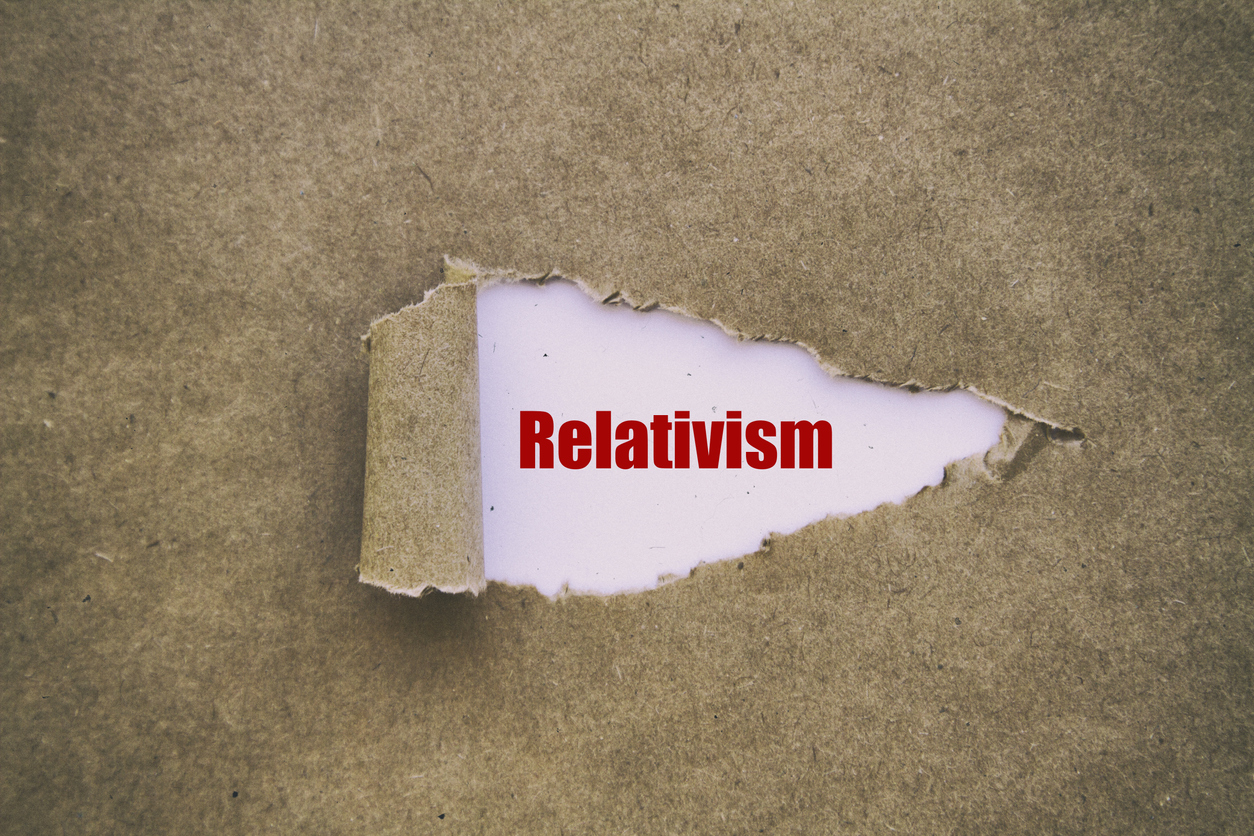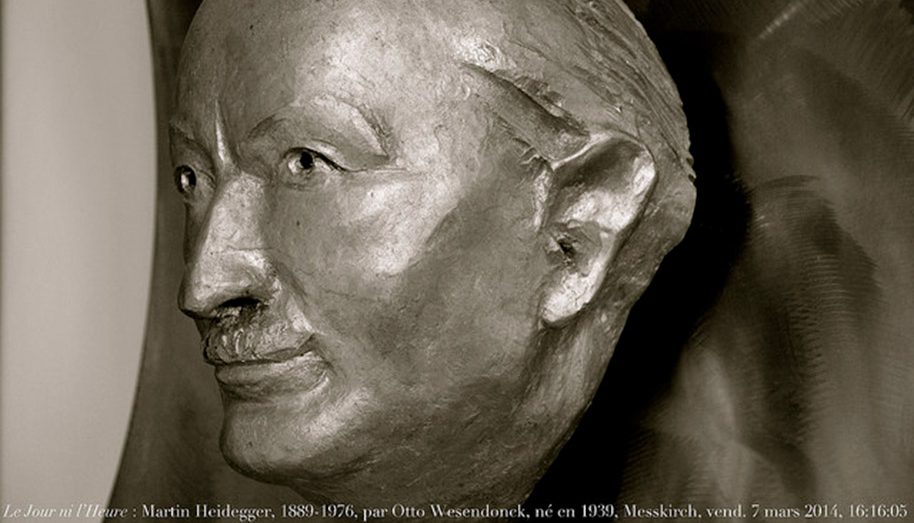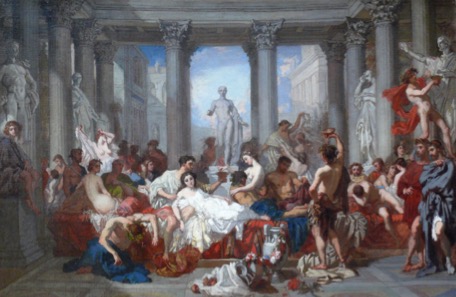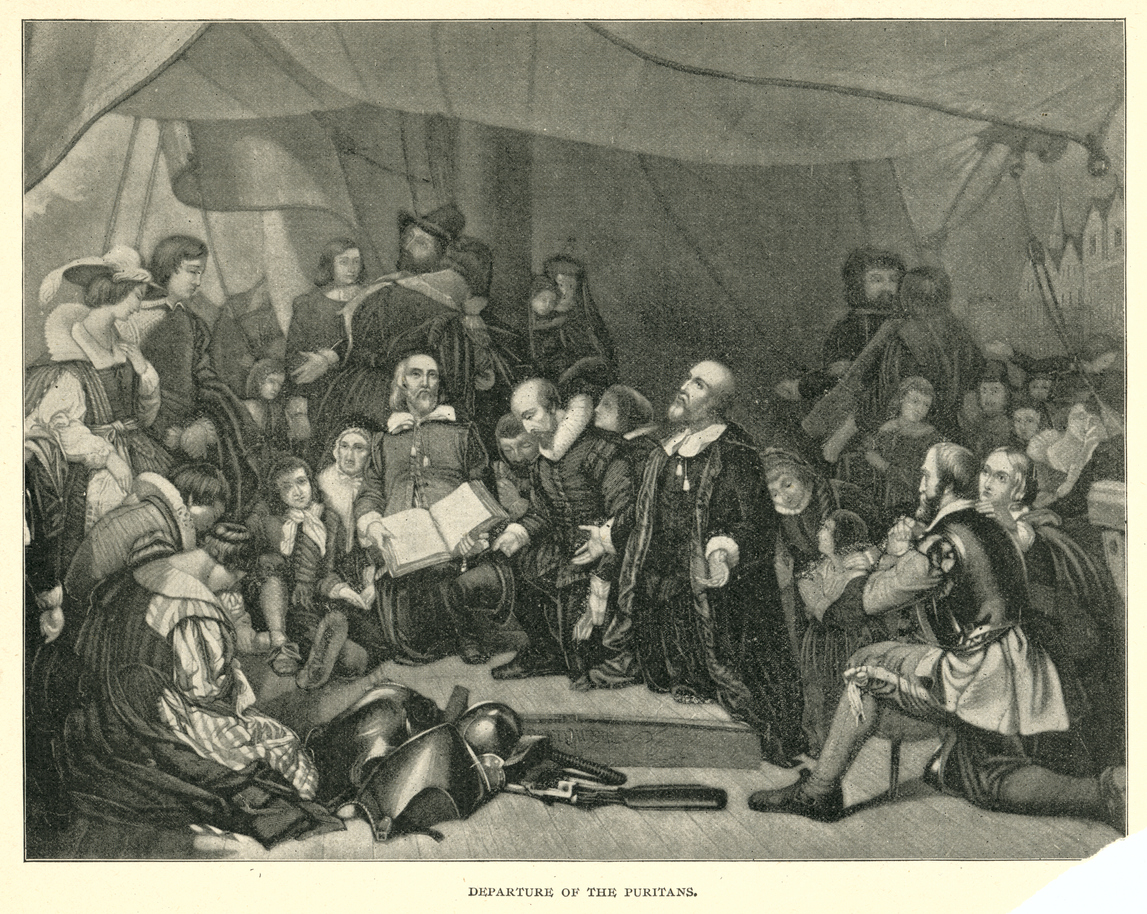Since Jaffa wrote "Reichstag" in 1989, the campus left has adorned its ideology with a few new terms—but its underlying relativism remains the same.
Education’s Disorder: It’s Not Relativism—It’s Disunity

Without a common understanding of the human person and the human good, academia is reduced to job training, politics, or consumerism.
The academy is in a period of decadence, as many have observed. But luxuriance might be the more accurate term. Tuition rates have shown superabundant growth, as have the ranks of administrators, who are now increasingly turning their troubled eyes to the realities of dwindling enrollments, and wonder what needs pruning and what needs more fertilizing.
Harry Jaffa and Allan Bloom hold relativism responsible. It’s not that we live in an age of cultivated ambivalence and academic skepticism: as Jaffa was quite aware, feckless relativism on the part of faculty and administrators bowed only too eagerly before the radicals’ dogmatic self-righteousness and illiberalism in the 1960s. But in the last two years the speed with which our cultural institutions have lined up to declare allegiance to Truth, with a large capital T in Cheltenham typeface, should give us some pause as we seek to understand our universities today.
Relativism, at best, has always been an imprecise diagnosis. Its role at the institutional level has chiefly been that of the stalking horse for more robust agendas. One such is the self-assertion of the separate academic disciplines. Here lies much of the university’s normal life, and much of it bears no resemblance to the more fevered conservative criticisms. Even humanities professors, strange to say, believe that they have learned some things by study and careful thought, and that their students can do the same. Their appetite for public utterance of the word “truth” may vary by election cycle, but the life of the mind goes on—the good, the bad, the indifferent.
A disconnected multiversity is not, as such, wholly corrupted. Most of the time mathematicians should focus on their mathematics, scholars of Sanskrit on their Sanskrit, and prudent administrators on staying out of the way. There is indeed an emptiness where a unified purpose and unifying wisdom of the university or college ought to be. Perhaps that is bad enough. But institutions, like nature, abhor a vacuum. Our colleges and universities lack a common understanding of the human person and his cultivation, and they typically lack even a common forum of argument in which competing understandings could be named and disputed.
Functional as well as theoretical substitutes are pushed forward to fill the gap, unify the institution, and determine the direction of its energies. In lieu of a governing wisdom that can be intelligibly sought and discussed, we see education recast as the affirmation of identities and the advocacy of their emancipation. This would-be governing wisdom is sometimes allied and sometimes opposed to the various disciplines. And both are at times in cahoots and at times in conflict with a much more powerful governing force: education’s economic transformation into a handmaiden of the economy—or rather, of employers. Higher education funds itself, via the federal loan system, as a sorting, signaling, and training service for employers’ benefit—a sort of indentureship where the student customers pay with their future income so that they can be marked as worthy. The diploma certifies them as the kind of human resource with the stability, docility and, in some cases, the social capital to be worth the employer’s time. The degree purchases basic employability in large swathes of the economy.
It doesn’t take an economic determinist to see that this business model exposes the university to consumer pressures. If majors in history are down, and majors with perceived return on investment are up, how can the administrators object? The heart wants what it wants. The intrepid leaders of academe offer inspiring euphemisms to describe the sale of their birthright for a mess of pottage, insisting on higher education’s deep value, and sacrosanct character, over and against fed-up state legislatures.
Not all argue in such bad faith, of course. Academics do want to defend their institution as serving the common good, and as more than a training and signaling device for the labor market. But how can they defend an undergraduate education’s value and goodness? All but the most blatantly radical know, perhaps inchoately, that however historically contingent academic institutions are, they do serve ends that are human goods and that don’t reduce to job training, mere politics, or the customers’ pre-existing desires. Academics find themselves forced to defend a contingent historical institution as developing essentially human goods in and through its activity. But like the other agents of decency who police public discourse, they have made a habit of rejecting any such argument. They have collectively agreed that historically and socially “constructed” concepts of human fulfillment and human goods can’t be part of the public good in a liberal society and that institutions have to measure up to the language of individual fulfillment, rather than vice versa.
Or if they have not so agreed, they are constrained by the consensus around them and by our public discourse’s anemic language. Expressive individualism: yes. A social contract: yes. Goods realized through institutions, which goods aren’t reducible to pre-specified rights? Nope. Defenders of higher education end up talking around the issue, or trying to state it in terms insufficient to capture their position’s basic ground.
Some such proposals are serious, nonetheless: a self-governing people does, for example, require organs of truth-seeking that are screened from the winds of popular passion. The defense of liberal education against subordination to outside aims is well and good, if hard to articulate persuasively in our political culture. But it sits uneasily, too, with the internal trends within higher education, where intellectual fragmentation and the activists’ superior enthusiasm threaten the institution’s ordering principles. In case after case scholars and teachers find themselves playing the reluctant small-c conservative, defending their discipline’s methodologies, faculty control over curriculum, academic freedom, procedural norms of peer review and editorial practice, and, with much less reluctance but little effect, tenure.
Of the many fowl returning to academic groves to roost, one squawks the loudest and distributes the most fertilizer. Academia has failed to defend its own internal principles of order no less than anyone else’s. So, in defending its place within the political order, it has proven ineffectual and tardy. Shamefully absent any unified or unifying wisdom or purpose in the education they so assiduously sell, they resort to trendy fig leaves grown locally in marketing offices and nourished in the hothouse of the core curriculum. Popular cultivars include “critical thinking,” perhaps the great shibboleth of the age; “global citizenship” or its more ambitious cousin, “global leadership”; and “socially engaged learning,” which ranges from the banal to the nakedly political. As any gardener knows, some plants need to be paired with complementary species to repel their natural parasites. Just so, these leaves flourish best when kept in close proximity to “return on investment,” “transferable skills,” and other such marketable marigolds. This farrago does not conduce to a coherent public argument, needless to say.
Returning to slogans of truth about human nature is surely not sufficient, any more than it is for journalism. But if such speech became more than a slogan, it might bring bad faith to light, and might allow disagreement to become more public, more deliberated upon, and more honest. Such a development would be, if not measured and fruitful growth, at least a healthy and cleansing breeze.
The American Mind presents a range of perspectives. Views are writers’ own and do not necessarily represent those of The Claremont Institute.
The American Mind is a publication of the Claremont Institute, a non-profit 501(c)(3) organization, dedicated to restoring the principles of the American Founding to their rightful, preeminent authority in our national life. Interested in supporting our work? Gifts to the Claremont Institute are tax-deductible.
We may never find a grand, unified theory of the “single truth," but we do not need it to know that men are not horses and beauty is truly good.
Both the burning of the Reichstag and the decline of the American university resulted from the choices of philosophers. Jaffa’s final address is a condensed version of the book Allan Bloom should have written, but couldn’t.
Absent the teaching of human truth, absolutism preys on our atomized youth.
"Relativism," contra Jaffa (and Bloom), was merely administrative compromise. But the academy no longer believes all sin is relative...
What's the Root of Academic Rot?






